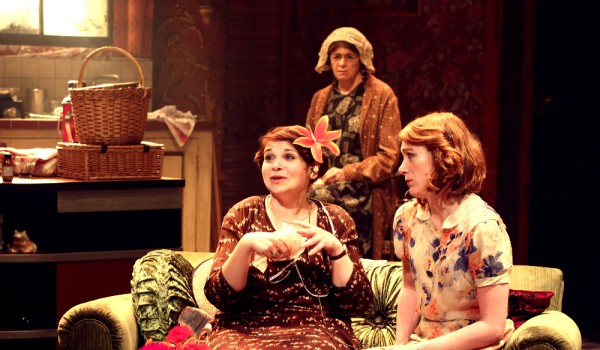A Lovely Sunday for Creve Coeur at the Print Room, W11
reviewed for The Times, 19 September 2016
The Coronet cinema has a decayed decadence about it, but it’s still not a perfect fit for this late Tennessee Williams play. A Lovely Sunday for Creve Coeur, written in 1976, represents one last glance back to the 1930s gentility that so fixated Williams. Looking up at the flaking balustrades I expected a visit by the Phantom of the Opera, not the ghost of Blanche DuBois.
Like DuBois, and like the Coronet, the heroine of Creve Coeur clings on to a dream of faded beauty. Dorothea ploughs through her calisthenic exercises with military dedication, convinced that the right physique can be her ticket out of teaching and into the uxorious arms of the aristocratic T Ralph Ellis. (The contemporary resonances in this fixation on body image are clear.) If Ralph proves a cad (place your bets, ladies) she has three options: the miserable spinsterhood represented by her older flatmate, Bodey; a staid Germanic marriage to Bodey’s boring brother Buddy; or a more refined ennui as the companion to cruel, social-climbing Helena.
There’s a real attempt here to address the female experience of isolation. Michael Oakley, the director, has assembled a quartet of strong performers: Helena’s sharp-elbowed defence of her territory is particularly well drawn by Hermione Gulliford. As Dorothea, Laura Rogers is so highly strung that we can see her vibrating, though perhaps too youthful. There’s no real threat of this slender girl imminently turning into Debbie Chazen’s plump, greying Bodey — even less so the dementia-addled Miss Gluck (Julia Watson, coping well with a part that descends into farce).
Dorothea’s apartment, while smothered in burgundy brocade, doesn’t quite merit the sneers directed by the visiting Helena, thanks to Fotini Dimou’s design. But the problem is the script. There’s no camouflaging the weakness of a playwright past his prime. Williams makes these characters spell out, crassly, the loneliness that any of these actresses can transmit with half a glance.







